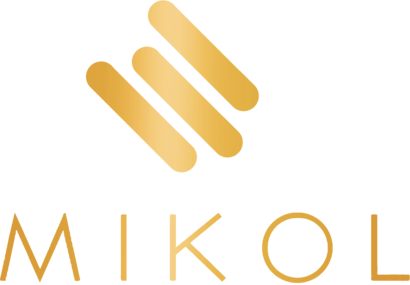
6 Insights for Those Interested in a Healthcare Career
Healthcare is more than just a career: it’s a calling, a commitment to improving the lives of others, often during their most vulnerable moments. For those setting out on the path toward a role in medicine, nursing, pharmacy, or the many other vital sectors of healthcare, the journey is both noble and demanding. It requires not just a strong academic foundation but also a deep sense of compassion, an ever-curious mind, and a capacity for growth. If you’re determined to join the ranks of healthcare professionals, there are crucial insights you should arm yourself with to navigate and excel in this dynamic field. Here are six foundational insights to guide you on your way.

1. Research Pharmacist Schools Rigorously
Pharmacy is a field that continues to evolve, with pharmacists playing increasingly significant roles in patient care and public health. As such, it’s more important than ever to thoroughly research pharmacist schools. Focus on understanding the academic prerequisites of pharmacist schools, program curriculum, and any specializations or career pathways they offer post-graduation. Here's what to consider: Does the program align with your goals, whether that's community pharmacy, research, or specialized fields like pediatric or geriatric care? Look for schools that offer robust clinical training opportunities and that have strong affiliations with healthcare institutions. The environment in which you learn can make all the difference in your readiness for the real-world demands of pharmacy. Beyond the classroom, delve into the research and innovation occurring at these institutions. The healthcare landscape is rich with opportunity, particularly for those pharmacists who are equipped to lead with cutting-edge knowledge and skills.
2. Understand the Distinctions Between Healthcare Roles
Healthcare is a tapestry of roles, each with its own set of responsibilities and educational requirements. As an aspiring professional, it’s essential to gain a clear understanding of the distinctions between these roles. For example, physicians require extensive education, including medical school and residency, before being able to diagnose and treat patients. Nurses often start with a bachelor's degree or an associate degree, with the opportunity to specialize or advance their degree throughout their career. Physician assistants and nurse practitioners typically complete master's degrees and have more autonomy than registered nurses but less than physicians. Additionally, there are roles beyond the clinical, such as healthcare administrators, researchers, and policy advocates, whose work is vital to the functioning of the healthcare system. By understanding the unique requirements and roles within healthcare, you can make more informed decisions about your career path.
3. Stay Informed About Emerging Healthcare Technologies
The healthcare sector is at the forefront of technological advancement, with innovations revolutionizing everything from patient treatments to administrative processes. Be proactive in staying informed about these emerging technologies, as they can significantly impact your role as a future healthcare professional. AI, telemedicine, and electronic health records are just a few examples of how technology is reshaping healthcare delivery. Stay updated by reading industry publications, following thought leaders on social media, and networking with professionals who are at the forefront of these changes. As you prepare for a healthcare career, consider how you can position yourself to leverage these advancements to provide better care and contribute to the evolution of the field. For example, pharmacists can explore opportunities to integrate technology into medication management systems or collaborate with physicians on telehealth initiatives.
4. Develop a Strong Foundational Knowledge in Sciences
Regardless of the healthcare path you choose, a strong foundation in the sciences is non-negotiable. Whether it's understanding the molecular basis of diseases, the pharmacology of medications, or the intricacies of the human body, scientific knowledge is integral to every healthcare profession. Begin by excelling in your high school science courses and continue to build on that foundation throughout your undergraduate and, if applicable, graduate studies. Consider double majoring or minoring in a science-related field to expand your understanding and boost your qualifications. And don’t forget the importance of maintaining a strong GPA, as competitive programs and careers often look for this as an indicator of academic rigor and discipline. Moreover, a strong scientific knowledge base will not only help you excel academically but also equip you to adapt to the constantly evolving healthcare landscape. Keep this in mind as you plan your academic journey.

5. Hone Your Communication Skills
Excellent communication skills are at the heart of effective patient care and are a requisite for successful collaboration within multidisciplinary healthcare teams. As an aspiring healthcare professional, focus on developing your ability to convey complex medical information understandably, to provide empathy and comfort to patients, and to work well with colleagues under often stressful conditions. Take advantage of any public speaking opportunities, practice active listening, and consider coursework or training in medical ethics and patient communication. Remember, your skill as a communicator will often be the difference between a patient understanding their diagnosis and treatment options or feeling overwhelmed and anxious. As a result, it is crucial to prioritize the development of this skill set.
6. Cultivate Empathy and Ethical Decision-Making
Cultivating empathy - the ability to understand and share the feelings of another—is critical. It drives a patient-centered approach to care and ensures that the human aspect of healthcare is preserved. Likewise, ethical decision-making is paramount. As an aspiring healthcare professional, you will be faced with moral and ethical dilemmas that require thoughtful consideration. This includes respecting patient autonomy, promoting beneficence, and identifying and addressing health disparities. Participating in volunteer or shadowing programs can provide valuable experience and help you understand the practical application of these principles. Regularly reflect on your interactions with patients and your peers, seeking ways to enhance your compassionate nature and your ethical compass.
As you absorb these insights and integrate them into your lifestyle and educational plans, keep in mind that the healthcare profession is continually evolving. Flexibility, adaptability, and a lifelong love of learning are the cornerstones of a successful healthcare career. Stay resolute in your commitment to helping others, and you are sure to find a fulfilling and impactful role within the realm of healthcare. A healthcare career is not just a job, it’s a calling - one that demands dedication, resilience, and compassion. By maintaining a serious and educational tone throughout your journey, you will continue to uphold the standards of this noble profession. Remember to stay curious and open-minded as you navigate through complex issues and always strive for personal growth. With these core values as your guide, you are on your way to making a meaningful difference in the lives of others through healthcare.
Leave a comment
Comments will be approved before showing up.



